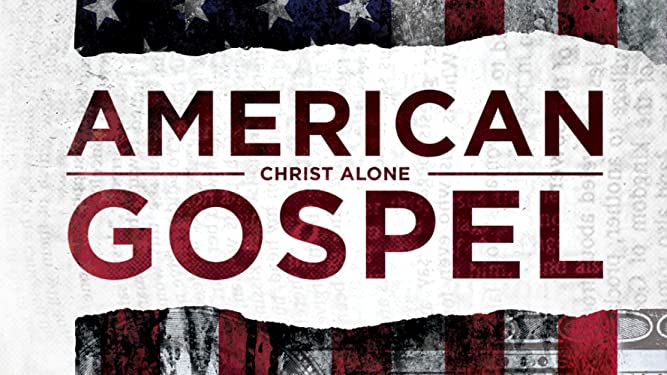Will Christian Trump supporters exchange their humanity for ignorance or for violent delights?
This article originally appeared at Baptist News Global on January 10, 2024.
“MAY THEY ROT IN HELL,” Donald Trump posted in all caps on Truth Social Christmas Day. “AGAIN, MERRY CHRISTMAS!”
Although this message was par for the course when it comes to Trump, it also offered a moment that caught many people off guard.
“What kind of sick person uses Christmas Day to rage and rant against his perceived enemies and to spread more lies and dissension?” BNG Executive Director Mark Wingfield asked in his final opinion piece of 2023. “What kind of Christian believes such a man is a fit leader?”
While the question could be taken as rhetorical, it’s actually a powerful invitation to consider how Christians might get emotionally stirred to promote someone who celebrates their non-Christian family, friends and neighbors rotting in hell.
Out of the abundance of the heart, the mouth speaks
Trump’s words on Christmas Day were made in the context of broader theologies of justice and humanity, as well as the affections these theologies produce. Of course, not even the most ardent Trump supporter would believe Trump is conscious of the theological assumptions of his post or even how theology moves our affections. But Trump’s ignorance does not remove him from participating in the ancient spirit of celebrating violent retribution against fellow humans.
Author/pollster Robert P. Jones called him out in October for using such language as “root out … the vermin,” “poisoning the blood of our country” and “the threat from within.” As Jones pointed out, when people told the Trump campaign the Nazis used these terms, a campaign spokesman replied by saying of those who would make such a connection, “Their entire existence will be crushed when President Trump returns to the White House.”
Talk about making the point for us.
“I fear that our rightful reticence to invoke an inappropriate Nazi analogy has rendered us incapable of calling out instances of actual Nazi ideology.”
As passionate as we all can be about politics, it can be tempting to roll the eyes when someone invokes the name of Hitler in political discourse. But Jones warned, “I fear that our rightful reticence to invoke an inappropriate Nazi analogy has rendered us incapable of calling out instances of actual Nazi ideology.”

Photo Wikimedia Commons
And when Trump himself responded in December to complaints about his use of the term “poisoning the blood” of America, he claimed, “I’ve never read Mein Kampf.”
Trump’s claim of never having read Mein Kampf may provide one of the rare occasions when we all believe him. But his ignorance and lack of reading do not absolve him from what he said. The truth is the words of Trump and the words of Hitler flow from the same heart of hierarchical purity and thirst for violence.
Going to heaven while loved ones go to hell
Many evangelicals would hear Trump’s words on Christmas Day and would agree he went over the top. But in light of evangelical theology, did he?
The ultimate Christmas Day for conservative evangelicals is the future day when Jesus is supposed to return to take them to heaven. In his book, The Reason for God: Belief in an Age of Skepticism, Tim Keller promised, “Everything sad is going to come untrue and it will somehow be greater for having once been broken and lost.” Worship songs echo, “What a day, glorious day that will be!”
But if that happens someday for them, the elephant in heaven’s throne room will be what Jesus is doing to their nonevangelical family and friends.
While some evangelicals believe Jesus will simply annihilate nonevangelicals, most believe Jesus will send them to eternal conscious torment. Many evangelicals take the apocalyptic language of the Bible literally, scaring kids by talking about a place where worms will be crawling through their skin as they weep, wale, gnash their teeth and swim around in pitch-black fire and brimstone for eternity. Others who affirm eternal conscious torment shrink back from such language due to how violent it seems.
But Keller doubled down on it. He said, “To say that the Scriptural image of hell-fire is not wholly literal is of no comfort whatsoever. The reality will be far worse than the image.”
In The Thrill of Orthodoxy, Trevin Wax agreed: “Jesus reached for the most awful picture language imaginable to convey a reality even worse than the images he used to describe it.”
If that turns out to be justice for nonevangelicals, how will everything sad come untrue, or every tear be wiped away for evangelicals, knowing what’s going down for their friends and family?
When I was an independent fundamental Baptist, we believed God would wipe away our memory so that we would forget they ever existed. But if you lived forever without knowing your child or spouse or parent or billions of your neighbors on earth ever existed, how would you be any resemblance of who you are? That reality would be dehumanizing, not only for the ones being tormented, but for the ignorant in heaven.
Some streams of Christianity have seen their neighbors’ torments in hell not as something to lament, but as cause to rejoice.
The other alternative, however, is far darker. In Keller’s framing, it would be sad to refuse to consider such a reality. In Trump’s words, it’s the same spirit that equates “Merry Christmas” with people rotting in hell. And to Wingfield’s question, it’s a spirit that encompasses far more Christians than Trump supporters, and goes back much farther in time than 21st century politics.










Leave a Reply
Want to join the discussion?Feel free to contribute!